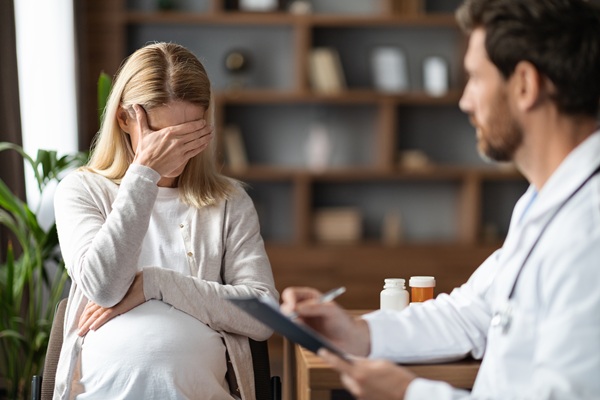What To Expect During Your First Visit With a Psychiatrist

A psychiatrist can manage the symptoms of your mental health disorder. The most important thing to do before seeing this doctor is to accept that you need help. Once you go through this stage, knowing what to do on your first appointment can help you prepare for it. Here are the details on what to expect when you see your psychiatrist for the first time.
Preparations for the first visit
Many people feel uneasy before the appointment. This may be because of the sensitive information that the patient will discuss with the psychiatrist. It is important to understand that this healthcare professional is highly trained. The issues during the visit will remain between the doctor and the patient. Part of the preparation is to get the forms and payment method ready. Talking to the insurance provider will clear any matters about the coverage.
Anxiety could make the appointment more challenging. It can help if the patient calms down before the appointment. The psychiatrist will target the patient’s issues one by one during the visit. The patient can feel more at ease knowing that the doctor will target every problem.
Discussing the medical history
The psychiatrist will ask about and discuss the patient’s medical history. Having a list of medical diagnoses, medications, and supplements can help make the review quicker. The doctor will also need to see if the patient has past psychiatric hospital admissions or treatments. The patient must also share medical conditions that can affect one’s mental health. Telling the psychiatrist about any family history of mental illness is also helpful.
Creating and discussing a list of problems
Making a list of the patient’s questions and feelings can help during the first appointment. The patient must also write down triggers for the current mental problems. Discussing how these triggers are affecting the patient’s life is also part of the first visit. These activities will help the psychiatrist understand the patient better. Labeling these feelings is not a good thing for the patient. The doctor will handle this.
Being open
The patient must be candid with the psychiatrist. Openness and honesty can help bring out the real effects of each issue. Even if the issues are personal, the patient can talk about them with the doctor. This can then help the doctor decide on the most suitable form of care after understanding the patient’s situation.
Bringing a close and understanding person
Some patients feel anxious about seeing a psychiatrist. There is a chance that the patient could cancel the appointment or have a difficult time during the visit. A supportive family member or friend can help the patient. This individual can even help the patient remember what the psychiatrist said after the appointment.
Taking notes
Write down important points that the psychiatrist will stress during the appointment. These notes will be helpful to the patient even after the visit. The information will be a good tool for the next sessions. This will provide continuity to the patient’s sessions.
Answering questions
The patient will be answering the psychiatrist’s questions during the first session. These questions aim to see how the patient is feeling and what the patient needs. The patient must know that these questions will be open-ended. There will be no right or wrong answers. The psychiatrist will always aim to make the patient comfortable at all times.
Experiencing different emotions
The patient may experience an emotional roller coaster during the session. This is normal. Know that the psychiatrist will understand whatever the patient feels. These emotions are important in targeting the root cause of the patient’s issues. Opening up to the doctor will need courage, which can be exhausting. There will be a box of tissues if the patient needs to cry.
Working on a treatment plan
Medication management is the general treatment of any psychiatrist. Psychotherapy referrals may be necessary. The doctor may order lab tests. These tests will rule out medical conditions that may be contributing to the patient’s symptoms. The psychiatrist will also evaluate the level of care that the patient needs. A more suitable treatment program will be necessary if the patient needs more intensive care.
After the first visit
The patient may need to add notes after the appointment. This is important while the experience is still fresh. The patient can mark the points or feelings that should be in future discussions. Reflecting on the first session is also necessary. See if there was rapport between the patient and the doctor. This will allow the patient to decide if the current psychiatrist is the one who can help.
Your first visit with a psychiatrist can give you the help that you need
It is often difficult to accept that you need help. But when you go over this hurdle, you need to prepare well for your first appointment with your psychiatrist. Doing so will allow you to know how to communicate with your doctor. Working with your psychiatrist can target the main mental issues and create an effective treatment plan.
Get more information about Future Psych Ketamine Clinics in Myrtle Beach at https://mb.futurepsychsolutions.com.
Check out what others are saying about our services on Yelp: Psychiatrist in Myrtle Beach, SC.
Recent Posts
ADHD treatment from a psychiatrist helps children and adults lead happy and productive lives by helping them manage their symptoms. Attention deficit hyperactivity disorder, or ADHD, is a neurodevelopmental disorder characterized by inattention, impulsiveness, and hyperactivity. Untreated, ADHD symptoms can disrupt the day–to–day life of those who suffer from it. The key to successful treatment…
Major depressive disorder treatment plans offer a structured and innovative approach to alleviating the burdens of depression. As mental health care evolves, new methods have gained recognition for their effectiveness in treating symptoms of this mental health condition. Knowing what to expect from these treatment plans can help create realistic expectations and improve your overall…
Attention-deficit/hyperactivity disorder (ADHD) is a neurodevelopmental disorder that affects millions of people worldwide. Common symptoms of ADHD include the inability to pay attention, acting impulsively, and having uncontrollable energy. ADHD significantly impacts how a person goes about their daily life. Fortunately, many treatment options are available to manage ADHD symptoms and improve overall functioning.Prescription medication…
Attention-Deficit/Hyperactivity Disorder (ADHD) is a neurodevelopmental disorder affecting children and adults. Fortunately, there are many ADHD treatments available. Early diagnosis and treatment are crucial for managing symptoms and improving quality of life. Whether you or a loved one is living with ADHD, it is important to understand multiple treatment options exist.The diagnosis of ADHD involves…


